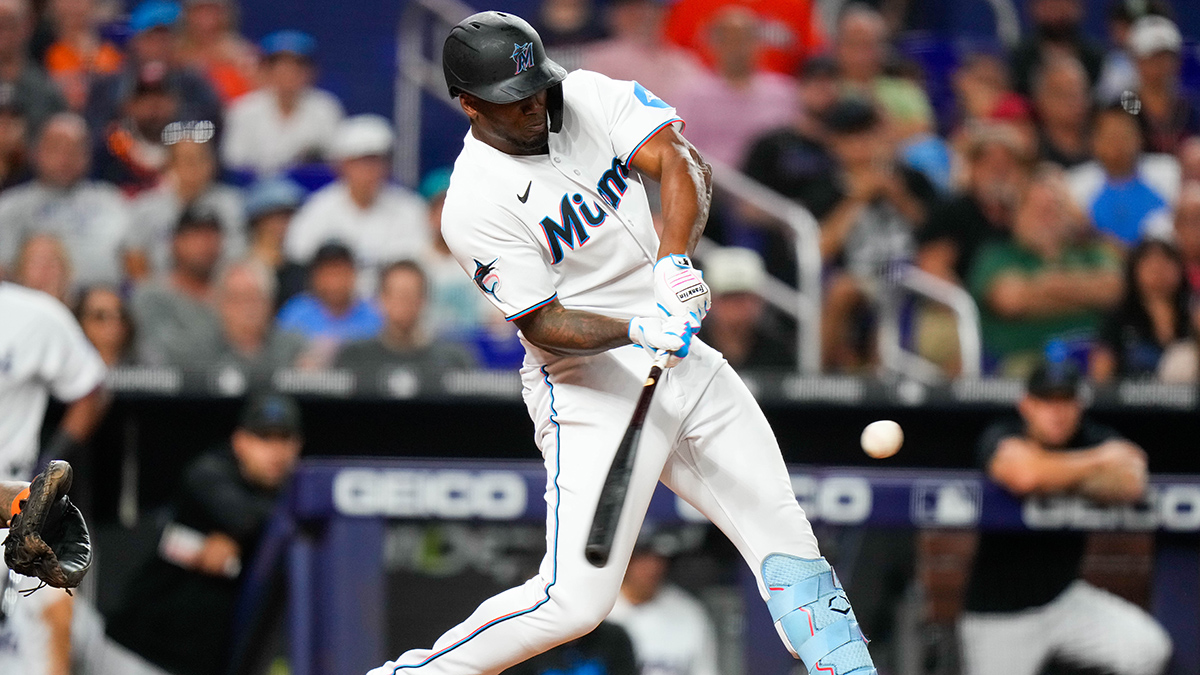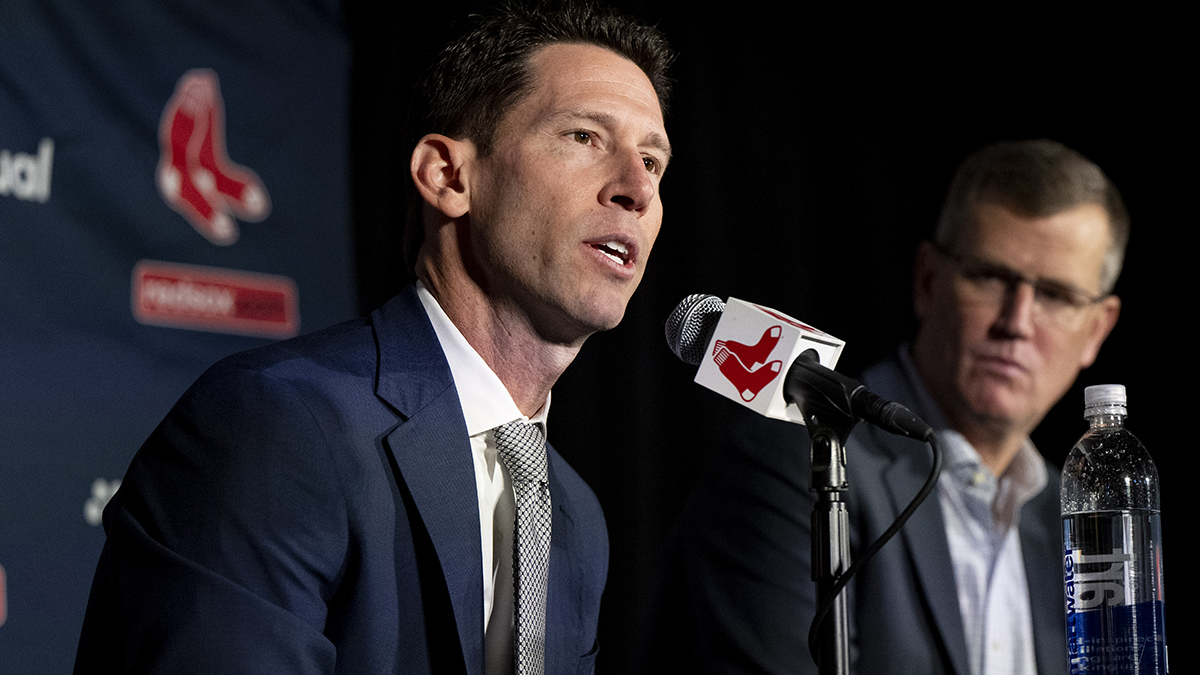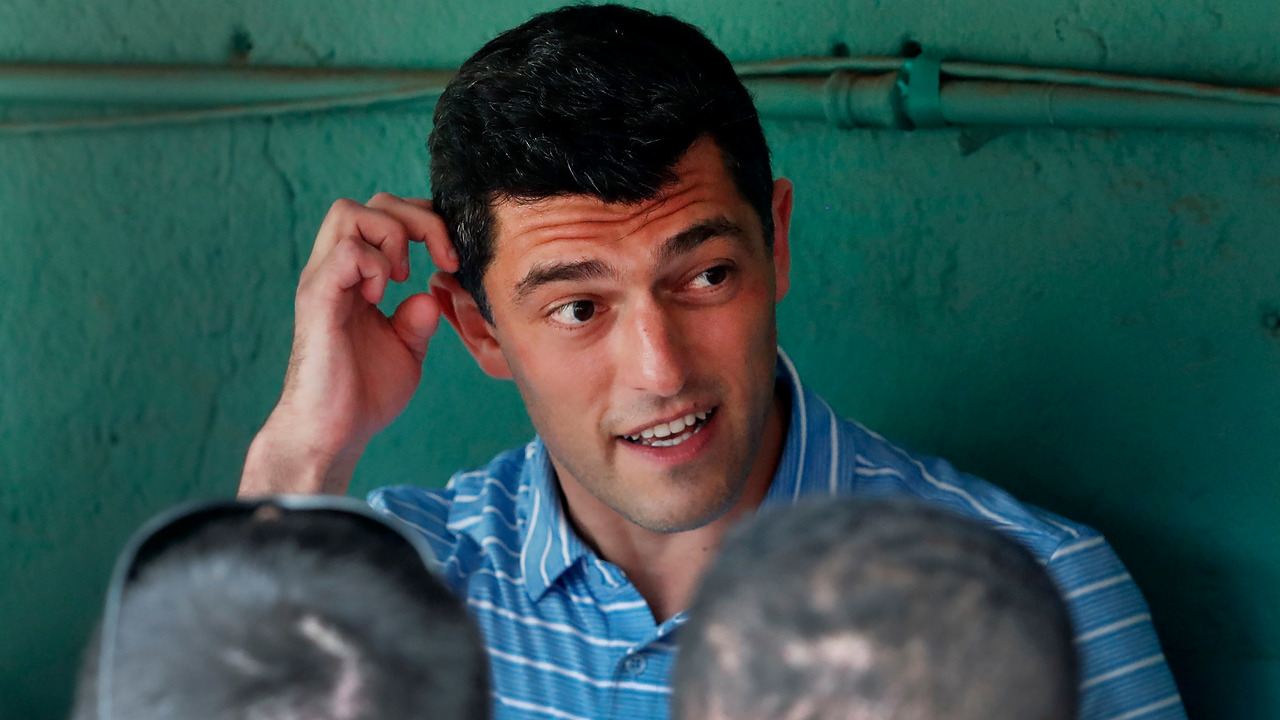Here's a question everyone associated with the Red Sox should be asking themselves as yet another offseason passes them by – what is our brand?
Are we one of the premier franchises in professional sports, or just another mid-major hoping to make an occasional run to the Sweet 16? Are we a destination for free agents, or do we only scavenge the leftovers? Are we hell-bent on driving the narrative of Boston as the City of Champions, or is our primary responsibility fiscal?
Someday business schools will study how the Red Sox willfully transformed from titans to titmice in the span of five years. The 2018 World Series winners belong on the short list of best teams in franchise history. Barring some serious maneuvering by new chief baseball officer Craig Breslow in the next month, the 2024 Red Sox will be everyone's pick for last in the rugged American League East, and by a wide margin.
Stay in the game with the latest updates on your beloved Boston sports teams! Sign up here for our All Access Daily newsletter.
How they got here is a lesson in self-inflicted irrelevance, and it could be years before they dig themselves out. Meanwhile, they'll continue to lose market share in Boston, where the Celtics are ascendant and the Patriots feed us the addictive soap opera that once made the Red Sox compelling for 365 days a year, and they'll slip further into non-factor status across MLB, which hypes the Dodgers as its new super-team.
Big-money free agents like Shohei Ohtani don't even pay cursory attention to Boston anymore. The same goes for experienced executives, about a dozen of whom declined to interview for the latest opening that went to the bright but green Breslow. The league's marketing ignores the Red Sox in favor of more recognizable stars from the Dodgers, Braves, Yankees, and Phillies, and there's more excitement in Cincinnati and Arizona over young standouts Elly De La Cruz and Corbin Carroll, respectively, than anything happening in Boston.
And we should've known it was coming, because ownership laid it out, if we had just been paying attention.
MORE RED SOX COVERAGE
The 2018 champions were absolutely loaded, with a core of Mookie Betts, Xander Bogaerts, and Chris Sale, alongside rising stars Rafael Devers and Andrew Benintendi, with a Gold Glover (Jackie Bradley Jr.), All-Star closer (Craig Kimbrel), and punishing DH (J.D. Martinez) thrown in for good measure.
The Red Sox could've extended that group's window, but owner John Henry had basically decided to shift direction by the end of the parade. Rather than continuing to flex their financial muscles – only three years earlier, they had lured David Price to Boston with the richest contract ever given a starting pitcher – they'd retrench.
So in September of 2019, they fired Dave Dombrowski, the big-thinking and big-spending architect of that title winner, and replaced him with Chaim Bloom, Dombrowski's polar opposite, a cautious incrementalist focused exclusively on the long view.
"Our real intention is to be competitive every year, and we'll do whatever we have to do to do that," chairman Tom Werner said at the time. "But the solution to that isn't always having the highest payroll in baseball."
In that same interview, Werner noted the success of the 2019 A's and Brewers, two small-market clubs that would lose wild card games a month later. "There are teams that make the postseason with half the payroll the Red Sox have," Werner said, and little did we know, but he had just uttered their mission statement.
The Red Sox are determined to win from within, which is just another way of saying cheaply. Under Bloom, they developed some high-end prospects, though it's unlikely there's enough to fuel a Braves-like rebirth. In the meantime, they've basically punted on three of the last four seasons, and not even unexpectedly winning this week's bidding for Japanese left-hander Shōta Imanaga is going to alter their 2024 trajectory.
They're a case study in brand diminishment, with their ambitions shrinking right alongside NESN's ratings and Fenway Park's attendance.
On Thursday, they'll begin taking ticket orders for the first two months of the season. Now might be a good time to reflect on exactly what kind of product they think they're selling.



